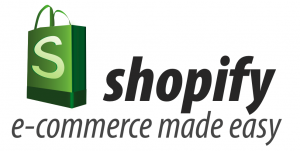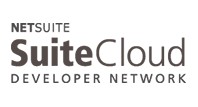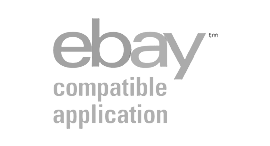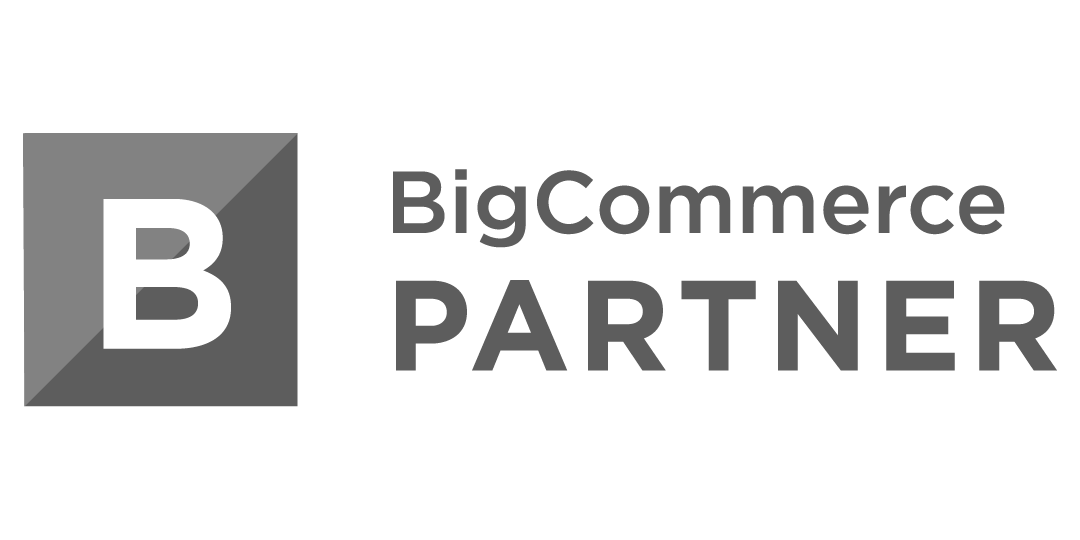Not all eCommerce shopping carts are created equal. Many look similar on the surface, but deep down have way more to compare than just price and features. Most merchants will only ever use a fraction of the features offered, so don’t let things like unlimited bandwidth and unlimited product listings be your main criteria. And unless you need complete customization and you have IT staff to help, full-fledged open source solutions are probably not the choice either. In our experience, small and mid-size companies have the best experience with mid-priced eCommerce platforms with a solid feature set and expandable design.
This chart compares four leading eCommerce shopping cart providers: Magento, Shopify, Volusion and Bigcommerce.
eCommerce Software Comparison Chart
| Magento | Shopify | Volusion | Bigcommerce | |
|---|---|---|---|---|
| Target User | Go-small Community-any size Enterprise-mid to large | Basic-small Professional-small to mid Unlimited-mid to large Plus-enterprise | Mini-small Plus-medium Pro-mid to large Premium-large | Silver-small Gold-medium Platinum-large Enterprise -very large |
| Hosting | Go-on Magento with limits Community-own hosting Enterprise- on Magento no limits | on Shopify | on Volusion | On Bigcommerce |
| Bandwidth | Go-4GB to 32GB Community-N/A Enterprise-full page caching and expansion during peak periods | all plans unlimited | Mini-1GB Plus-3GB Pro-10GB Premium-35GB | all plans unlimited |
| Design | Go-open source with limits Community-open source unlimited Enterprise-open source with extended limits | closed source | closed source | Silver-closed source Gold-closed source Platinum-closed source Enterprise-open source |
| Content Delivery Network (CDN) | Go-available Community- N/A Enterprise- available | available via Akamai | available via Akamai | available |
| Storage | Go-200MB to 5GB Community-N/A Enterprise-Unlimited | Basic-1GB Professional-5GB Unlimited-unlimited Plus-unlimited | unlimited | Silver-2GB Gold-5GB Platinum-30GB Enterprise-unlimited |
| Price | Go-$15mo./100 SKUs to $125mo./10,000 SKUs Community- free download Enterprise- $15,550+(includes 1 production and one non-production server license/multi-server-user license also available) | Basic-2.9%+30¢online/ 2.7%+0¢swipe Professional-2.5%+30¢online/ 2.4%+0¢swipe Unlimited-2.25%+3¢online/ 2.15%+0¢swipe | Mini-$15/mo. Plus-$35 Pro-$75/mo. Premium-$135/mo. | Silver- $34.95/mo. & 2% transaction fee Gold- $79.95/mo. Platinum- $199.95/mo. Enterprise start at $999/mo. storage overage = 10¢/MB |
| Fees | Go-no setup fees no transaction fees Community-no setup fees no transaction fees Enterprise-annual subscription & no revenue fees | no setup fees fees on transactions | no setup fees no transaction fees | no setup fees no transaction fees for Gold, Platinum & Enterprise Silver-2% transaction fees |
| Key Features | Go-open source code with limited customization, manage multiple sites, 60 languages, currencies & tax rates, one page payment, flexible catalog design Community-open source code with unlimited customization Enterprise-open source code with limits, manage multiple sites, 60 languages, currencies & tax rates, one page payment, flexible catalog design, add on features endless, consulting available | quick setup and easy to use interface, 100+ updated and modern design templates, additional designs for fee, some custom settings, advanced report building at granular level, discount code promotions, and abandon cart recovery eMail tool, & future product publishing | all plans receive unlimited storage, social media tools, facebook store, mobile commerce, and auto tax rates, access 80+layout templates or 350+for fee, upload inventory from spreadsheets & inventory alerts Mini- above features Plus- above features+ newsletters, ratings & reviews pages, abandon cart reports and import/export capability & customer loyalty plan Pro-plus features +Amazon & eBay integration Premium-pro features + dedicated account manager and unlimited product posting | all plans offer built-in blog, SEO, 60 payment options, add-on apps for eMail, marketing & shipping, create sales, coupons and gift certificates, facebook shop interface, shipping calculator, loyalty program, & local pickup or in-store pickup option Gold- above + abandon cart saver Platinum- above+ setup, store migration & high volume API Enterprise above+ customize emails, coupon codes, SEO, expert design help, setup & store migration, Google Trusted Automation Badge |
| Support | Go-24x7 eMail & chat , limited phone, consulting for fee Community-user support Enterprise-24x7 SLA support, consulting for fee | 24x7 phone, online chat, and eMail, website design for fee | 24x7 Mini-online Plus-phone Pro-priority Premium-account mgr. | phone, eMail & chat support for all plans |
| Integration | Go-API & 5000+ extensions for fee Community- API Enterprise- API for 3rd party tools & apps, extensions for CRM, ERP, accounting, payment, shipping, 5,000+extensions | API with all and extends functionality with 580+online apps (free & fee), Shopify POS, | API with all Pro & Premium- Amazon & eBay CRM API | API with all Silver-app store Gold-app store Platinum-app store Enterprise-app store |
| Multichannel Management Integration | seamlessly integrates with nChannels nCom AppSuite | seamlessly integrates with nChannels nCom AppSuite | seamlessly integrates with nChannels nCom AppSuite | seamlessly integrates with nChannels nCom AppSuite |
| Mobile | HTML5 for Apple & Android devices | IOS Apple devices with card reader | supports Apple, Blackberry, Windows Mobile, Android & Samsung with card readers | supports iOS and Android device via mobile app download |
| Security | Go-3D Secure credit card validation Community-built-in software security enhancements Enterprise- PA-DSS compliant | 128 bit SSL encryption & level 1 PCI DSS Compliant | Level 1 PCI & CISP SSL certified for fee | Level 1 PCI-certified SSL certified |
| Reporting | Go-basic reporting & integrated Google Analytics Community-custom design Enterprise-advanced reporting & integrated Google Analytics | Basic-no reports Professional-reports track sales, orders & payments, export reports Unlimited-reports track sales, orders & payments, export reports and create detailed reports | integrate your Google Analytics account, use customizable reports, stats on site, ie. visitors, page views, top referrers, and weekly sales | integrate your Google Analytics account for reporting tools |
| SEO | Go-short URLs for easy search, custom meta data, site map & landing pages for promos, & A/B testing Community-complete custom Enterprise-short URLs for easy search, custom meta data, site map & landing pages for promos, & A/B testing | SEO apps for fee | built-in SEO configuration tool applying meta tag fields for data searches on product and categories | built-in optimization with title & header tags, meta descriptions & keywords, custom page URLs, image alt tags, SEO optimized themes, search engine friendly links, Google AdWords for fee |
| Marketing Tools | Go-offer coupons & banners Community-complete custom Enterprise-private sales, targeted promotions, reward points, customer segmenting & gift cards | Basic-website blog Professional-website blog, abandon cart recovery service, gift cards, professional reports Unlimited-website blog, abandon cart recovery service, gift cards, professional reports, advanced report builder & real-time carrier shipping | social media & business apps for fee | seamless integration with add-ons like MailChimp, facebook, eBay, PayPal, Google & more for fee |
| Catalog | Go-create product specific options, create groups, bundles, configurable options, search by options & categories, recent view & compare Community-complete custom Enterprise-create product specific options, groups, bundles, configurable options, search by options & categories, recent views & compare & private sale permissions | unlimited items | Mini-100 items Plus-1,000 items Pro-10,000 items Premium-unlimited | unlimited items |
| Payment Options | Go-integrated with multiple payment gateways & PayPal Community-custom design Enterprise-integrated with multiple payment gateways & PayPal, supports multiple currencies | supports over 80 payment methods and third-party processors. | auto tax calculation/tax exemption & built-in credit card processing, optional 30 payment gateways including PayPal | supports all major credit cards, including Visa, MC, AX and JCB as well as 60+ payment providers including PayPal & Google Checkout |
| Training | Magento U online for fee | free Ebooks & videos, blogs & forum | online videos | step-by-step tutorials to setup and open for business; Bigcommerce University: online videos & workshops; for fee consulting |
Key Shopping Cart Considerations
1. Design – eCommerce platforms can be very simplistic with limited or standard customization (closed source) or very complex with unlimited customization (open source). It is important to determine whether or not the platform you choose can support the needs you have for:
- Flexibility and customization for layout and style choices appropriate for your products (or allow for 3rd party designer)
- Catalog support for item descriptions, categorizing and detailed search
- User controls for features, page changes, additions, and updates
- Architecture supporting
- data volume and page loading (storage & cache)
- traffic (bandwidth and content delivery network (CDN) for increased speed during peak use and improved global access)
- SEO – meta data tags applied for ‘getting found online’ and product search
2. Features – Features should not only attract and keep buyers on your site but enable customers to experience your brand in a personal way and make purchases conveniently with perks and customer service that keep them coming back.
- Catalogs should provide detail level attributes, product specification, user reviews, availability and price
- Ability to include high quality photos and video
- Easy purchasing & checkout with widely accepted payment options
- Accept and redeem coupons, discounts and loyalty points
- Reporting and analysis on buyer, item and sales activities
- Communication tools supporting eMail, online chat, blogs or social media
3. Platform Pricing – Basement bargain pricing sounds good, but in the long run, you could end up spending more on upgrades and adding features and enhancements. Choose an eCommerce platform that fits your budget, supports your current business needs and scales to support future growth.
- Avoid eCommerce platforms who apply penalties for upgraded plans
- Choose a plan that flexes with catalog listings
- Consider your customer and any fees they would incur (hidden fees can damage your reputation)
- Compare the cost between platforms with built-in features and enhancements versus a la carte pricing for add-on apps and extensions
4. Support – Know who will be on your side when technical issues and questions arise with your eCommerce solution. A mission-critical eCommerce storefront must have support at hand.
- Choose an eCommerce platform that supports your size and type of business
- Evaluate your training needs- initial setup, ongoing technical help
- Is 24×7 access via phone, eMail, online included or pay per use
- Is support local or off-shore
- Make sure your eCommerce storefront is backed up
- Is additional training and assistance available (in person or online)
5. Integration and Expansion – eCommerce platforms with API allow companies to seamlessly integrate external business applications increasing efficiencies and reducing manual tasks and adding enhancements supporting future growth.
- Open application interface (API) standards enable plug-in operability with add-on apps, CRM, accounting, ERP, multichannel management platforms and other business application software
- Flexible options in adding or removing enhancement solutions eliminates risk associated with huge investments in hard-coded, installed software
- Increase agility and scalability for business strategies, new ventures and future growth
eCommerce Shopping Cart Review
All four eCommerce platforms have a lot going for them. Choosing the best one definitely comes down to personal preference and business requirements. Sign up for free trials and take a test drive. Here’s a list of highlights we like with each:
Magento Highlights:
- Magento has been a leader in eCommerce storefront development since 2008 powering over 200,000+ online storefronts including Nike, Ghiardelli, and Olympus.
- Magento Go is designed for non-tech savvy, small businesses just getting started in eCommerce. Go offers customization and design options and the ability to add extensions for enhanced functionality as you grow.
- The Enterprise Edition, powers up for fast growing, large businesses who are a bit more tech savvy and need advanced design tools. Enterprise offers advanced reporting features, handles discounting and vouchers and will integrate seamlessly with back-end systems like inventory and accounting for high performance operation.
- Community Edition is perfect for tech savvy users wanting unlimited customization and unlimited functionality as well as integration with backend workflows. Technical support is not provided with this solution.
- Multiple languages supported
- No transaction Fees
Shopify Highlights:
- Another leader in eCommerce storefront development since 2006 powering over 100,000+ online storefronts including GE, Tesla Motors, CrossFit, and GitHub.
- Shopify has a solid reputation for being a great option for non-tech savvy users wanting to open online stores quickly.
- Users really like the modern and attractive themes- using bold graphic design with fonts, photos and artwork.
- Although perfect for beginners, Shopify scales for larger businesses with plug-in tools for accounting, customer service, marketing, shipping, social media and fulfillment.
- True 24×7 anytime support via phone, chat, or eMail.
Volusion Highlights:
- Operating since 1999 with 50,000+ online storefronts including intel, 3M, and National Geographic
- Advanced plans integrate with eBay and Amazon for easy selling.
- Also supports sales of digital goods like downloads and eBooks.
- The batch edit function makes it easy to upload inventory from a spreadsheet and make changes to bulk products.
- Volusion includes useful back office monitoring tools like inventory alerts and advanced reporting of sales data including customizable reports that show specific statistics regarding certain aspects of the site.
- Integrates with QuickBooks and Google Analytics, making accounting and traffic analysis easy.
Bigcommerce Highlights:
- Founded in 2009 with over 50,000+ online storefronts known for turning small sellers of hip and unique brands into multi-million dollar enterprises
- Includes a broad feature-set built-in with tools like automatic eMail newsletters, coupon and promotional campaigns, shipping and tax configurations, secure payment gateways, store stats and reporting, social commerce and product reviews.
- Popular step-by-step tutorial helping beginners setup and go live.
- Users can take advantage of content-member only logins for segmented customers and shopper perks like loyalty memberships and local pickup or in-store pickup options.










After expanding our business we’ve switched to Virtosoftware http://virtocommerce.com/ and it was a breeze to integrate and use. I suggest you check it out.
Nice write up on various eCommerce platforms. As you share your expert insights on shopping cart platforms, I recommend you share your expert thoughts on Yo!Kart multi vendor eCommerce solution. This eCommerce platform is specially developed for startups who are looking for a budget friendly yet reliable eCommerce solution to start with. You may check Yo!Kart demos and more information here: http://www.yo-kart.com/
Well, there are wide range of eCommerce CMS but it’s true that Magento is still considered as a powerful and most secured ecommerce Platform software. Shopify is also growing rapidly but it is more suitable for small and average sized businesses. This case study is very helpful and drives webmasters and developers to use Magento for ideal ecommerce website. I would recommend to checkout this eCommerce Platform software listed our here on SoftwareSuggest
I wish to add laravel ecommerce, its really flexible and usability optimized platform for online stores. http://www.laravelecommerce.com
Very informative and helpful post. Thanks! Shopify Training – Avoid These 4 Things Or You Will Fail
great post. thanks. here is one of the complete ecommerce marketplace platform, MarketEngine for WordPress to be considered, explore on http://www.enginethemes.com
This information is very useful and thanks for sharing
https://www.oqtic.com/what-is-the-best-ecommerce-plugin-for-wordpress/